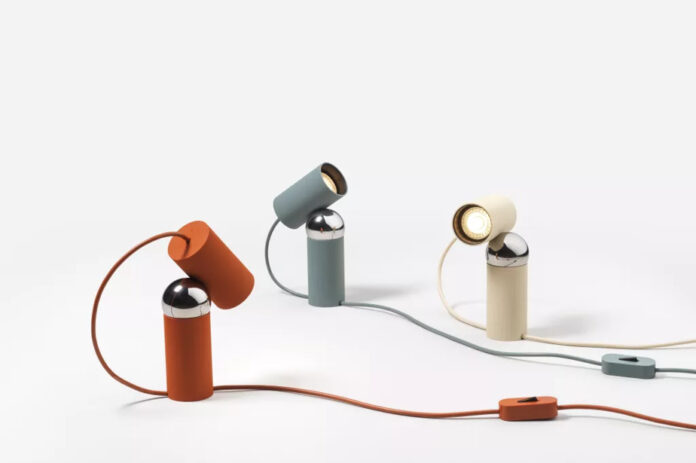The renowned Italian manufacturer Flos has just presented the Bilboquet luminaire, designed by Quebec industrial designer Philippe Malouin, at the Euroluce 2023 show in Milan.
“It’s the pinnacle of industrial design!” », rejoices Philippe Malouin.
Flos uses renowned designers to design its lights, which very often become key design objects.
And what’s more, it was the Italian manufacturer who contacted the Quebecer to order a creation.
“The artistic director of Flos sent me a message in January 2020, at the start of the pandemic,” he says.
“I couldn’t believe he wanted to work with me. He had never worked with people who weren’t Europeans. »
The native of Salaberry-de-Valleyfield, whose studio is located in London, told us about Athens, where an art gallery wants a Milan publisher to publish a book on his work.
Flos had asked him to design a light that could be made in Italy for around 260 euros apiece ($390), “something that is a bit iconic and whose function is obvious.”
His studio made a few proposals, one of which was retained and developed. The manufacturer, however, failed to achieve the target price.
Philippe Malouin looked for another concept. “After a lot of work, I managed to solve the problem. »
The Bilboquet luminaire has a cylindrical base surmounted by a glossy steel hemisphere. A second cylinder, a kind of projector, clings by magnetism to the dome, around which it can take an infinity of positions and orientations.
This is indeed a defining moment for the small studio.
“In the history of Flos, I believe they’ve had 15 designers since 1964,” says Philippe Malouin. It gives me a self-confidence that I didn’t have before. I never would have thought this could happen to me. I’m from Salaberry-de-Valleyfield! »
Philippe Malouin had undertaken studies in industrial design at the University of Montreal when a scholarship led him to the National School of Industrial Creation in Paris. From there, he was admitted to the (very) renowned Design Academy Eindhoven, in the Netherlands.
“I was very lucky…I got noticed by the school principal. She led me to exhibit in Milan when I graduated. »
After a stint with British designer Tom Dixon, he opened his studio in London in 2008.
“I’m an SME,” he points out.
He carried out special projects with small manufacturers, took part in collective exhibitions, embarked on interior design, for which he surrounded himself with a substantial team.
It was noticed by the furniture editor Established
“That’s when bigger publishers started looking at my work and started inviting me. »
He practices a form of refined expressionism, which surprises and seduces with the ingenuity of its geometric combinations. Museums and galleries have asked him to create special pieces.
Since the start of the pandemic, he has refocused on furniture and has only kept one employee, an industrial designer of Polish origin. Since then, the studio’s income has mainly come from royalties paid for plays sold by its customers.
“I’ve been making a living with just that for maybe five years,” he explains. It’s the work I did six or seven years ago that is starting to pay off now. »
Perhaps his greatest success is the Offset collection of tables and stools, which he created for the New Zealand manufacturer Resident.
“They are all over the world. That’s maybe 20% of our turnover. »
The Chop chair, for HEM, launched in January, is his first piece of outdoor furniture. “It drives very well,” he says.
And now there is the Bilboquet luminaire, which casts a very beautiful light on the future.
“It helps us open up the Italian market. We want to work with the major Italian furniture designers, and that’s kind of what’s coming. That’s grand for a designer! »
A designer who nevertheless remains modest.
“I was in the right place at the right time, I was very lucky,” he repeated more than once.
The lucky designer will be in Montreal on May 4 to take part in the Complètement design trade show, organized by Index Design and aimed at professionals. He will give a conference there on his creative process.
Because luck is the result of hard work.
A dozen pilot scholarships
Everyone fell for it. Forex’s oriented strand board (OSB) plant, located in Amos, was acquired by a bigger player, Arbec Forest Products. Forex, a family business previously owned by the Cossette family, employed approximately 140 people. The Amos mill joins Arbec’s OSB mills located in Saint-Georges-de-Champlain, Quebec, and Miramichi, New Brunswick. Arbec now employs some 450 people there. With this transaction, Arbec, chaired by Joey Saputo, monopolizes approximately 5% of OSB panel production in North America.















